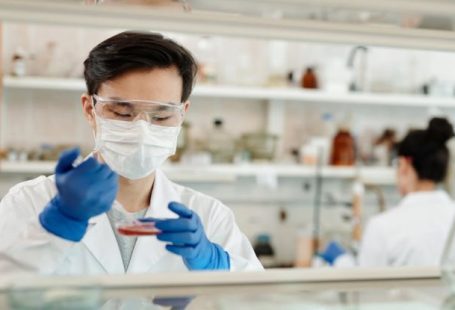Genetics has long been a subject of fascination and study in the field of science. The study of genetics holds the key to understanding heredity and the transmission of traits from one generation to the next. With advancements in technology and research, the role of genetics in preventing diseases has become a topic of interest and debate. Can genetics truly help prevent diseases? Let’s delve into this intriguing question.
**The Role of Genetics in Disease Prevention**
Genetics plays a crucial role in our susceptibility to various diseases. Our genes determine not only our physical characteristics but also our predisposition to certain health conditions. Some diseases, such as cystic fibrosis and Huntington’s disease, are caused by genetic mutations that are inherited from parents. In these cases, genetic testing can help individuals understand their risk of developing the disease and take preventive measures.
**Predictive Genetic Testing: A Glimpse into the Future**
Predictive genetic testing is a powerful tool that can provide individuals with valuable information about their genetic makeup and potential health risks. By analyzing an individual’s DNA, predictive genetic testing can identify genetic variations that increase the risk of certain diseases. This information can empower individuals to make informed decisions about their health and take proactive steps to prevent disease.
**Precision Medicine: Tailoring Treatment to Genetic Makeup**
One of the most exciting developments in the field of genetics is the concept of precision medicine. Precision medicine involves tailoring medical treatment to an individual’s genetic makeup, allowing for more personalized and effective care. By analyzing a patient’s genetic information, healthcare providers can determine the most suitable treatment plan based on their unique genetic profile. This approach not only enhances treatment outcomes but also minimizes the risk of adverse reactions to medication.
**Genetic Counseling: Guiding Individuals Towards Healthy Choices**
Genetic counseling plays a crucial role in helping individuals understand their genetic risks and make informed decisions about their health. Genetic counselors are trained professionals who provide guidance and support to individuals seeking information about their genetic makeup and potential health risks. By offering education, support, and resources, genetic counselors empower individuals to take control of their health and make proactive choices to prevent disease.
**Ethical Considerations: Navigating the Complexities of Genetic Information**
While genetics holds immense potential for disease prevention, it also raises important ethical considerations. The use of genetic information in healthcare must be approached with caution to ensure patient privacy and autonomy are protected. Issues such as genetic discrimination and the confidentiality of genetic data must be carefully addressed to uphold ethical standards in the field of genetics and healthcare.
**The Future of Genetics in Disease Prevention**
As technology continues to advance and our understanding of genetics deepens, the role of genetics in disease prevention will only grow in significance. From predictive genetic testing to precision medicine, genetics offers a wealth of opportunities to improve health outcomes and prevent disease. By harnessing the power of genetics responsibly and ethically, we can pave the way for a healthier future for generations to come.
**In Conclusion: Harnessing the Power of Genetics for a Healthier Future**
Genetics has the potential to revolutionize the field of healthcare and disease prevention. By leveraging genetic information to identify health risks, tailor treatment plans, and empower individuals to make informed decisions about their health, we can pave the way for a future where diseases are prevented before they even manifest. As we continue to explore the possibilities of genetics in healthcare, it is essential to prioritize ethical considerations and ensure that the benefits of genetic advancements are accessible to all. By embracing the power of genetics, we can create a healthier and more resilient society for generations to come.





